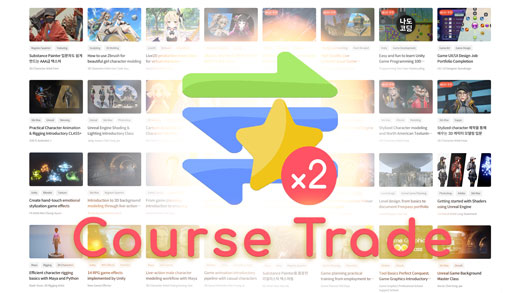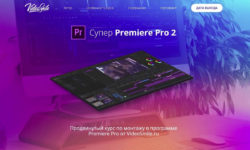User Experience (UX) – The Ultimate Guide to Usability and UX
Release date:2020, April
Author:David Travis
Skill level:Beginner
Language:English
Exercise files:Yes
What you’ll learn
- Bake UX into your workflow by following a proven, user centred design framework.
- Plan field visits and user interviews to uncover user needs.
- Moderate a usability test and prioritise the observations.
- Create personas, user stories, red routes and user journey maps.
- Uncover and describe users’ mental models.
- Choose appropriate schemes for classifying and organising information.
- Design and conduct online and offline card sorting sessions.
- Select appropriate user interface design patterns.
- Develop cheap, throwaway prototypes to get quick and frequent feedback from your users.
- Create user interface designs that exploit universal principles of visual design.
- Design usability tests to measure time on task, success rate and user satisfaction.
- Evaluate the usability of systems by applying usability heuristics.
- Prepare for the BCS Foundation Certificate in User Experience.
Requirements
You don’t need a background in user experience, design or coding to take this course.
This is an in-depth course. If you allocate 60-90 mins a day, and do all of the activities, it will take 2-3 weeks to complete.
Description
2021 Edition.
You’ve just landed on Udemy’s highest rated course on user experience (UX). Thousands of user researchers and designers have used this course to kick-start their career in UX. You can do it, too.
Gain hands-on practice in all the key areas of UX — from interviewing your users through to prototyping and usability testing your designs.
Build a UX portfolio to boost your job prospects as you complete five real-world sample projects.
Gain industry-recognised certification by preparing for the BCS Foundation Certificate in User Experience.
UX Mastery reviewed dozens of online courses in UX, but they gave just one course 10/10: this one.
Build Your UX Portfolio As You Work Through 5 User Research and Design Projects.
The sample projects in the course include:
- Find my pet: a product that allows people to track down wayward pets who have got lost.
- Tomorrow’s shopping cart: a device that lets customers find any product in a supermarket.
- Gift Giver, a gift recommendation system based on an extremely accurate product recommendation technology.
- The Citizen Journalist: a system that will allow ordinary people to film events, take photographs, write a story and create a crowdsourced, online newspaper.
- The Digital Postcard, an app that will allow users to create and send their own postcard, either by using a photograph they have taken on their phone, or by selecting a professionally taken image of a local beauty spot.
A career in User Experience is one of the most rewarding and challenging jobs in the technology sector. This online training course will give you the background you need to get started.
Prepare for the BCS Foundation Certificate in User Experience.
This course covers the comprehensive syllabus for the BCS Foundation Certificate in User Experience and contains 90 multiple-choice quiz questions to test your knowledge and prepare for the exam. You can take the exam (at extra cost) anywhere in the world at a Pearson Vue exam centre.
Free bonus offer!
Free bonus #1: A 81-page student workbook packed with design exercises, tutorials on UX methods, templates to record user research observations, stencils for UI prototypes, a detailed reading list and a glossary of terms..
Free bonus #2: A 417-page, high quality PDF that contains every slide shown on the course. Print this out, load it on your mobile device or keep it handy on your computer: it’s your choice.
Free bonus #3: A written transcript of every lecture. Comprising 231 pages and 89,236 words, this document is useful if English isn’t your native language or if you just want a readable and searchable version of the course.
Free bonus #4: 90 multiple-choice quiz questions to test your knowledge as you progress through the course.
Free bonus #5: Access to our thriving Facebook group where you can network with fellow students, ask questions and submit assignments for peer review.
Download everything. If you have a slow internet connection, or want to take this course with you on your laptop, smartphone or other portable device, sign up and download all the videos and other course materials now.
When does it start?
Today! This is a self-paced course, so you can start anytime and view the lectures anywhere. Sign up now and you could be watching the first video in under 5 minutes.
How long will it take?
With over 140 lectures and 9 hours of content, this is the most in-depth course on UX you’ll find on Udemy. If you allocate 60-90 mins a day, and do all of the activities, it will take 2-3 weeks to complete. And if you want to spread the course out over a longer period, that’s fine too.
Is it for me?
This course is for you if you want to get hands-on practice in all the stages of user experience. Perhaps you’re starting out in the field of user experience. Or maybe you want to transition from your current job role to a career in UX. Whatever your background, you’ll apply your skills to a real world project that will become the first entry in your UX portfolio.
What if I get stuck?
As you move through each of the steps in the design process, you’ll be able to test your knowledge and compare your work with other students so you can see what “good” looks like. I review the course forum every day and I answer all student questions within 24 hours. So if you struggle with any of the material, just ask a question and I’ll help you out.
Can’t I learn this stuff from a book?
It’s certainly possible to build your user experience expertise by reading books and blog posts, but that can be a slow process and it makes it hard to see the big picture. With this workshop, it’s you and me together working for a client, and I’m giving you the same tips, the same advice, and sharing the same techniques I’ve learned over the years on hundreds of design projects.
What if I don’t like it?
Over 17,000 people have taken this online course and over 90% of students give it 4 or 5 stars, so I’m confident that you’ll love this course. Just in case, I offer a 30-day, no questions asked, money-back guarantee. So sign up today, it’s risk free!
Kick start your career in user experience with this 12-hour, online, video training course.
Who this course is for:
- Anyone who wants to transition from their current job role to a career in user experience.
- User researchers or designers who want to build their user experience portfolio by applying their skills to a real world design project.
- Software developers who want to learn techniques for designing more engaging systems.
- Project managers and Scrum Masters who want a full lifecycle process for introducing usability into their design project.
- Interface designers who want to learn methods for testing and evaluating their designs.
- Web site designers who want to understand the principles of human-centred design.
- Marketing managers who want to find out about the business and brand benefits of user experience.
- Business analysts who want quick and effective tools for communicating requirements of users.





 Channel
Channel





